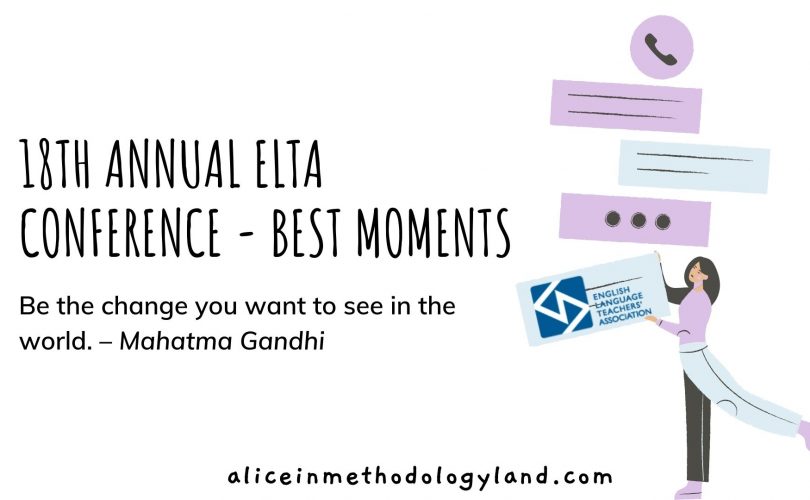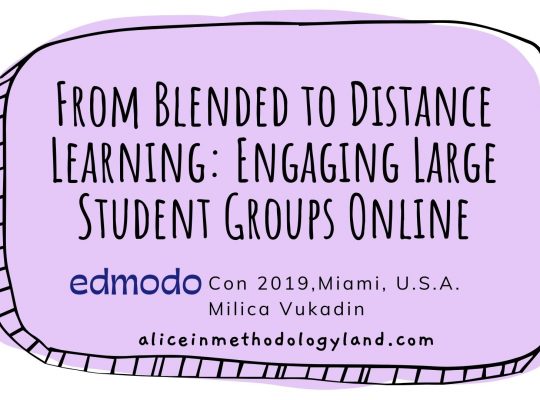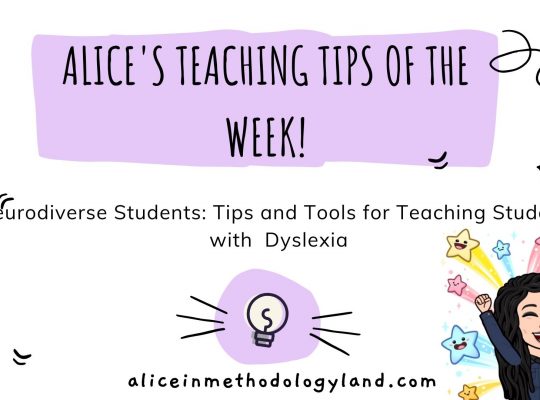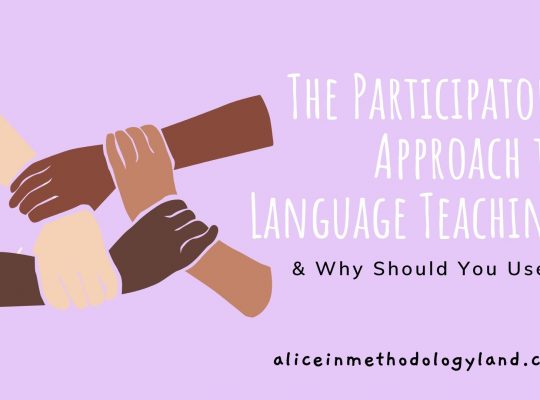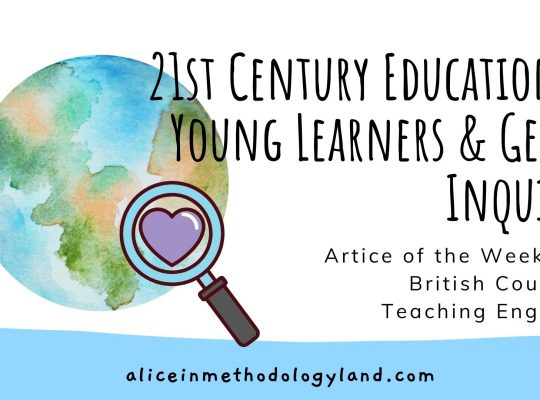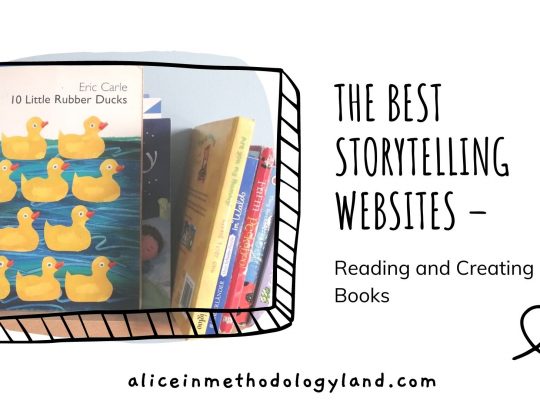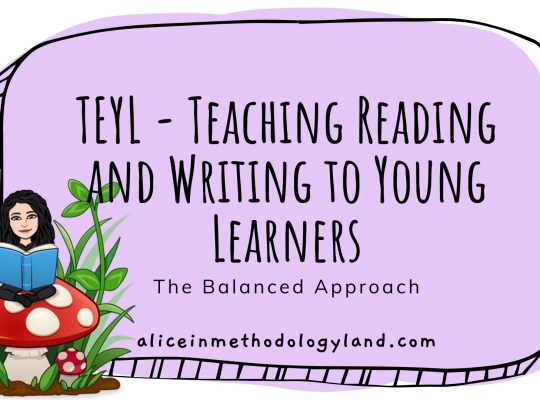Hello, my dear colleagues! This post will review the 18th annual ELTA conference hosted by the English Language Teachers’ Association in Serbia. The conference was online and it had over 200 participants! Now, let’s dive into the conference itself and peek into some presentations ELTA has prepared for us.
The 18th ELTA conference program
The conference program had 3 plenaries, and many workshops and talks.
ELTA conference gave us the chance to hear internationally renowned plenary speakers. It mirrored a wide range of theoretical and practical issues and developments in the teaching world. The participants took part in workshops, commercial presentations, and international exchanges among ELT professionals. In addition to all other benefits, there were numerous publishers’ and sponsors’ prizes and awards.
The theme of the conference was:
Be the change you want to see in the world. – Mahatma Gandhi
Explore the ELTA conference program for day 1 here
Explore the ELTA conference program for day 2 here
ELTA Conference website
Having made the website myself, from scratch, I must say good job, Milica! ?
Now, let’s get serious – the website has a clear schedule and every participant got featured on a separate page. The design is very modern, simple and the website is optimized for mobile devices and tablets, so it is functional on literally all devices. Simplicity was the key and I believe this key function was achieved successfully. Let me know what do you think and if you are interested and need a website, I am open to collaboration!
Virtual Classroom Management by Kevin McCaughey
Virtual Classroom Management abstract
It’s tempting to think that management in virtual classrooms isn’t needed. After all, teachers have ultimate muting power. But there are key decisions to be made that will affect behaviors, coordination, and efficiency in online lessons. Camera on or off? When to use the mic, when not? The presentation will address these and list principles that make for well-structured tasks in live online sessions. Additionally, Kevin will offer a list of activities that are better online than face-to-face.
Click here to go to Kevin’s conference page (explore his biography and see his presentation there)
What I liked/learned about Kevin’s presentation
Kevin has a very outgoing personality and his presentation was probably the most engaging presentation in the entire conference, especially when it comes to interactivity. He showed many practical examples, and I loved the fact that we are doing the activities with him, and not just listening about them. Kevin discussed the concept of classroom management, built-in online tools every video conferencing tool has, and then he shared some interesting activities that work online (short writing prompts & picture prompts). Finally, he discussed some questions we should think about in the future:
- Will you change the way you teach after the pandemic is over?
- How was teaching impacted by Covid19?
Kevin was very interesting to listen to and I am sure he is an amazing teacher!
We loooove the chatbox!
Kevin McCaughey
Sketchnote of the presentation
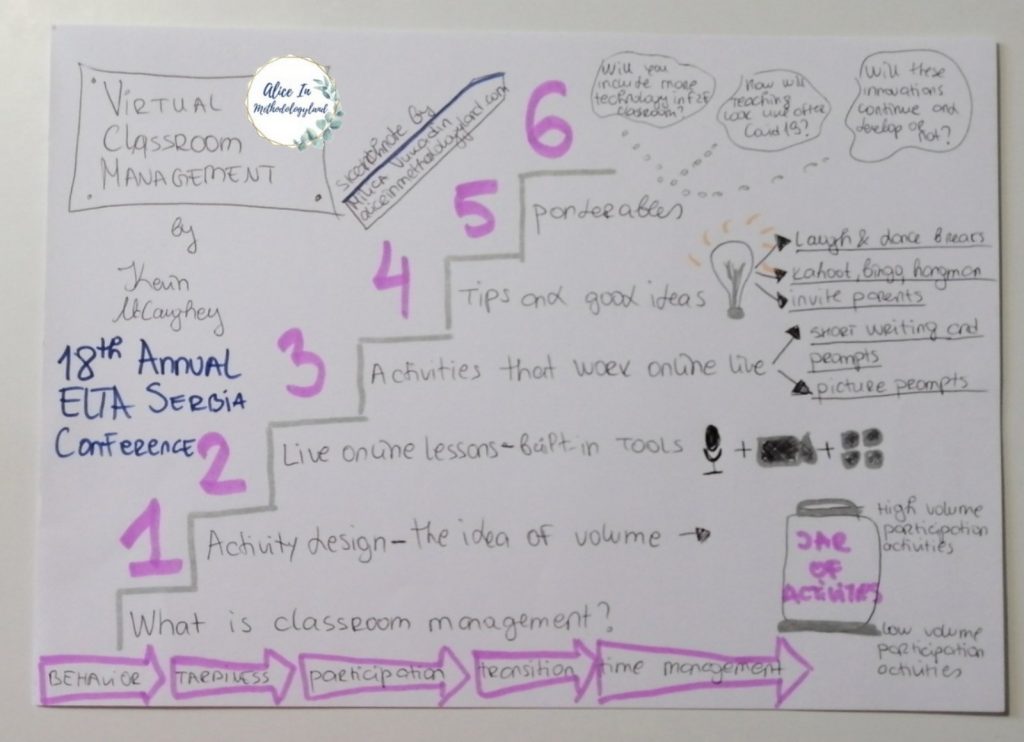
Why learning disability is (NOT) a special need by Gregor Pirš
Why learning disability is (NOT) a special need abstract
In my talk, I will discuss the difference between special needs of students and students with learning disabilities. We will talk about the pluses and minuses of labelling and why learning disability should not be (necessarily) perceived as a special need. We will also cover the issue of parents and how to deal with them. Hopefully some time will be left for Q and A.
Click here to go to Gregor’s conference page (explore his biography and see his presentation there)
What I liked/learned in Gregor’s presentation
Gregor presented from his classroom and I loved it! He shared some theories about special needs and disabilities, but in an engaging way, with a lot of examples. Gregor mentioned the positive and the negative effects of labeling, which is a very controversial topic, and it needs to be discussed more. He discussed the key difference between special needs and learning disabilities and also shared the most common types of special needs. To conclude, he gave us a framework we could use to differentiate our teaching and create an inclusive environment in our classroom (presented in the sketchnote below).
Gregor was very enthusiastic about his job, but also very realistic, which makes him a perfect person to teach SEN students. It was great to peak into his classroom and see how he manages to teach students who need additional support.
Special needs students may have learning disabilities, and students with learning disabilities may have special needs-
Gregor Pirš
Sketchnote of the presentation
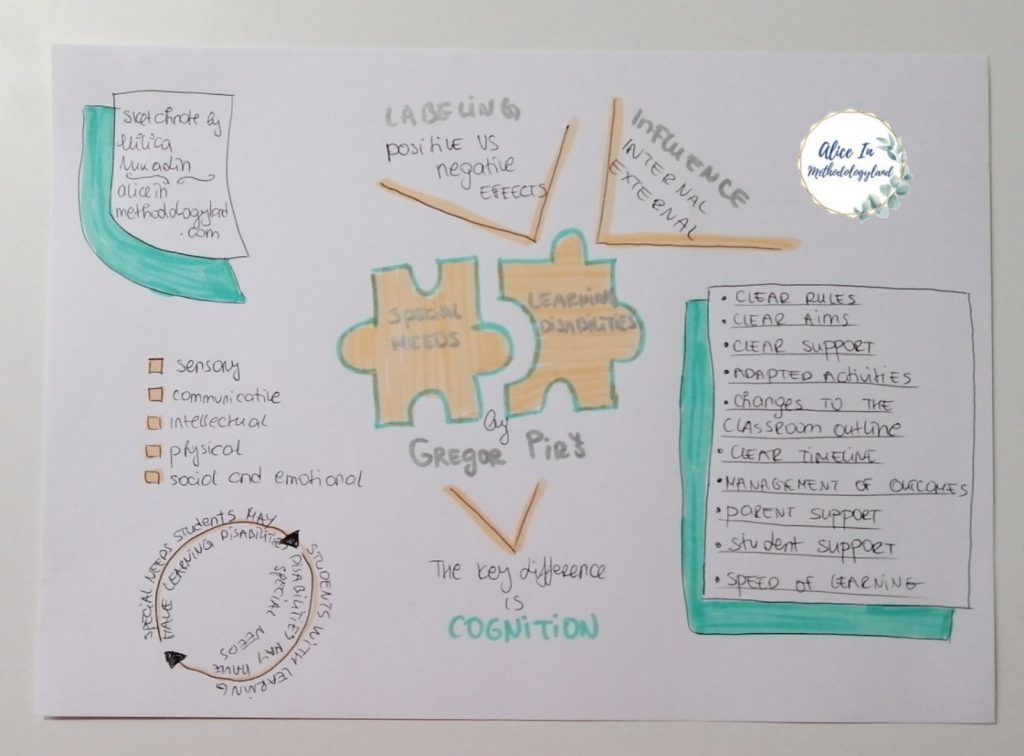
Enhancing Learning through Principled Creative Teaching (PCT) by Chaz Pugliese
Enhancing Learning through Principled Creative Teaching (PCT) abstract
Creativity, the set of skills used to manufacture original, valuable teaching ideas, can be any teacher’s formidable resource. Far from being a magic fix, more creative approaches to teaching can result in the students’ increased attention and motivation thus rendering the process smoother and providing the students with a richer learning experience. In this talk, we will first overview the numerous reasons for PCT, and highlight in particular, the need to surprise and stimulate the students. We will then go over a few strategies anyone can use to develop their creative muscles and we will quickly take a look at a few practical classroom applications. Please note that the ideas and principles sketched out in the talk apply to teachers working online as well as in more conventional f2f contexts.
Click here to go to Chaz’s conference page (explore his biography and see his presentation there)
What I liked/learned in Chaz’s presentation
Chaz’s presentation started as an academic lecture and ended up being a motivational talk since his presentation was not working. It’s refreshing to listen to an educator who can make people listen to him for 60 minutes without having a presentation – this is where we see how important our personality and thoughts are as teachers. We can also charm our students without any materials if we try. Chaz discussed the chaos theory and dogme teaching, while also highlighting that less can be more when it comes to lesson planning. His other point was that in order for teaching to be effective it must be culturally appropriate and creative.
The best classroom moments are unscripted.
Chaz Pugliese (quoted an academic author, I didn’t catch the name)
Sketchnote of the presentation
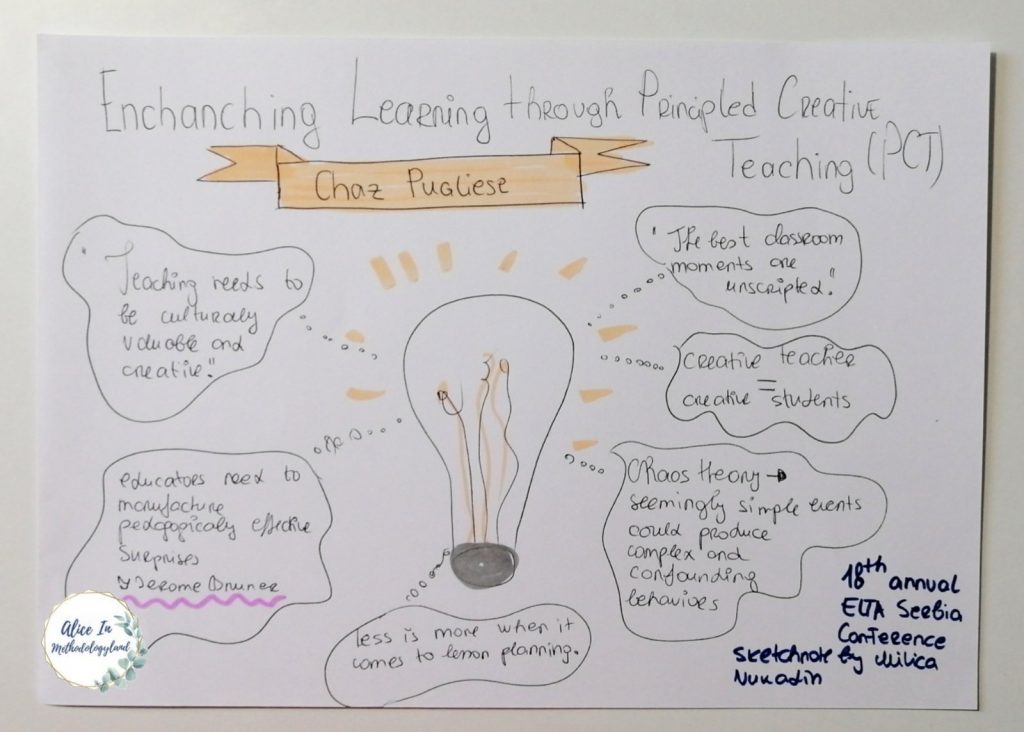
10 things to consider when planning for VYL by Mehtap Özer Isović
10 things to consider when planning for VYL abstract
Along with observation and assessment, planning is at the heart of effective early childhood practice. Teaching English to very young children is no exception. Planning for VYL could be challenging, especially if you haven’t done any training for the early childhood education. However, if you know these essentials, you will be able to design your English classes for the benefit of children, teachers, and families. Participants will leave this practice-oriented presentation with the essentials of long-term and short-term planning for VYL.
Click here to go to Mehtap’s conference page (explore her biography and see his presentation there)
What I liked/learned in Mehtap’s presentation
Mehtap is an English teacher who teachers very young learners in preschool. Generally speaking, all English teachers are not prepared to teach in preschool, and this is a fact. This is nothing negative, they are just not given the proper tools for that while attending university. In order for them to be able to teach in preschool effectively, they must learn a lot about child development. Other important things include collaborating with preschool teachers and parents, including parents in the activities, providing variety in terms of activities.
Another very important thing is to plan the unplanned – be ready to make long-term and short-term plans, while also planning for reflection and keeping a blog/journal/diary of things that worked and things that didn’t work.
Mehtap also mentioned diversity and inclusion, which is extremely important in early childhood education. As a preschool teacher, I loved Mehtap’s presentation and I hope she will continue to inspire other people to teach very young learners.
Go with the flow and listen to your students. If one of them comes to preschool and wants to talk about something, ditch your lesson plan, and listen to the child.
Mehtap Özer Isović (this is a paraphrase since the quote was too long to be written down)
Sketchnote of the presentation
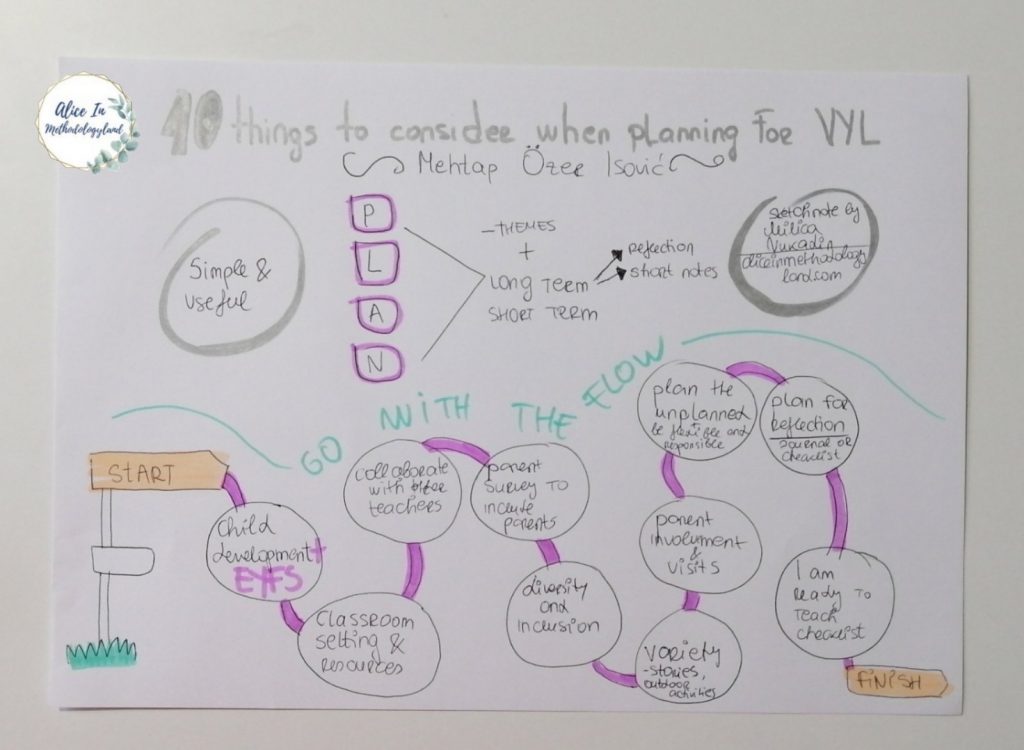
Sustainable Development – Descreasing the ELT footprint by Milica Vukadin
I will discuss my presentation in a separate article, and now I just want to share my abstract and my presentation.
The talk will present crucial sustainable development goals and the significance of decreasing the ELT footprint. The research presented discusses the development of an English environmental preschool curriculum and its teaching framework. Some of the innovative methods used are Theme-Based Instruction, STEAM, Project-Based Learning, and ICT in education. The present educators will have a chance to listen to an interactive talk, create an online wall with activities together, see a video reflection from a National Geographic Educator certification course, and last but not least, they will be able to peek into the activities of an environmental preschool in Sweden. Last, but not least, the participants will have a chance to join a free online professional development course connected to early childhood environmental education.
Overall impression from the organizers’ side
As an organizer, I can say that almost everything ran smoothly. There were a lot of things happening in the background to make the ‘stage’ look and feel seamless. We had 3 parallel sessions with 15-minute breaks in between. Every session had a moderator and almost every session was recorded for people who could not attend the live conference. We had a very good program organization in terms of moderating, so everyone was able to catch a break.
Here are some of the tasks that the moderators had:
- Audience welcome message
- Agenda outline
- Discuss relevant session protocol
- Speaker introductions
- Permissions for shared information
- Track inquiries in chat windows
- Administrate Q&A sessions
- Manage unexpected system glitches
- Close the conference
Feedback from the participants
Our feedback was 100% positive! The complete feedback was outstanding and the participants shared their satisfaction with the organization. As ELTA’s board member, I must say that I am happy about it, but I also want this conference to be only the beginning of our journey into teaching innovations and teacher training.
Upcoming conference
The next ELTA conference will also happen online in May! Subscribe to my website or to ELTA’s website and we will inform you when we make the program. What do you think about our program? Let me know in the comments, or via the contact page.

Click here to explore my store where 99% of materials are forever free!
All the materials except lesson plans and 30+ page interactive activity books will be free FOREVER! Why? Because sharing is caring, and 2020 hasn’t been kind to all of us. Please consider donating so I can keep making FREE materials for everyone and keep my website open for all of you.

Don’t forget to leave a review when you download materials! It’s just a minute of your time and it means a lot to me.
P.S. The store and the freebie library are not the same things – the freebie library has some extra materials like conference presentations and webinar recordings which are not available in the store ✨
The subscription link for the store is below my bio in every post. ?

